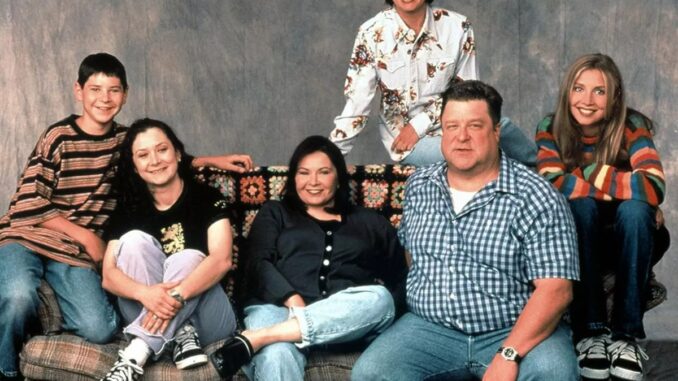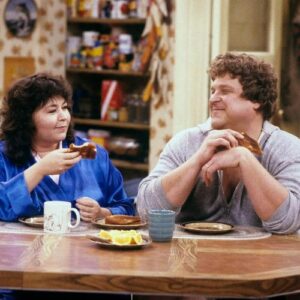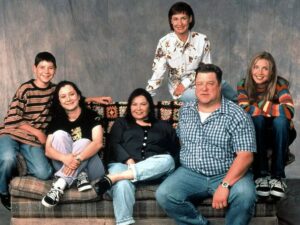
This week, TV legend Roseanne Barr stopped by Comic-Con International in San Diego, a city she hasn’t visited in the more than two decades since her notorious “Star-Spangled Banner” performance before a Padres game. Barr put the past behind her to take part in TV Land’s Comedy Legends panel on Thursday, which also featured “Star Trek” alum William Shatner and “Seinfeld” star Wayne Knight.
The middle class may still be around, even if some are only hanging on by a thread. But on TV, shows portraying the middle class have virtually disappeared. Today, we are bombarded by reality shows about the rich and famous showcasing people who are nothing like the typical American family.

But Roseanne gave us a weekly dose of reality mixed with humor, and I think we were better off for it. Her show grounded us and, for many, made our lives actually look pretty good compared to hers.
For instance, in the show’s pilot, the oldest daughter Becky is taking cans of food to school for a food drive and says it’s for “poor people,” and Roseanne quips back, “Well tell ‘em to drive some of that food over here!”
Unfortunately, this show probably has more relevance and “realism” in today’s economy than back when the show first aired. Roseanne was recently quoted in Entertainment Weekly saying, “I’m very proud of it’s timelessness and, you know, the fact that it has a political edge; that it is even more relevant now than it was then.”
I couldn’t agree more. Families like the Conner’s who live paycheck to paycheck are rarely, if ever, seen on television today. The ironic thing is her sitcom is probably more realistic than half of the “reality” shows dominating television right now.
The show dealt with every day, real issues that were taboo for television. Some of the topics included financial difficulties, substance abuse, mental and physical abuse, abortion, depression, and feminism. Roseanne was also the first family sitcom to show a woman, not a man, in charge of the household. In addition, Roseanne brought gay characters to the forefront of American television and paved the way for them on television.

Although the last two seasons were lackluster, at Roseanne’s peak, it was the funniest, most well-written, socially relevant sitcom of all-time.
Roseanne Barr sums it up best in her A&E television biography saying, “I was televisions probably first, last and only woman whoever did exactly what I wanted to do, week after week, despite everybody being alarmed, pissed off and against. I still did it!”
